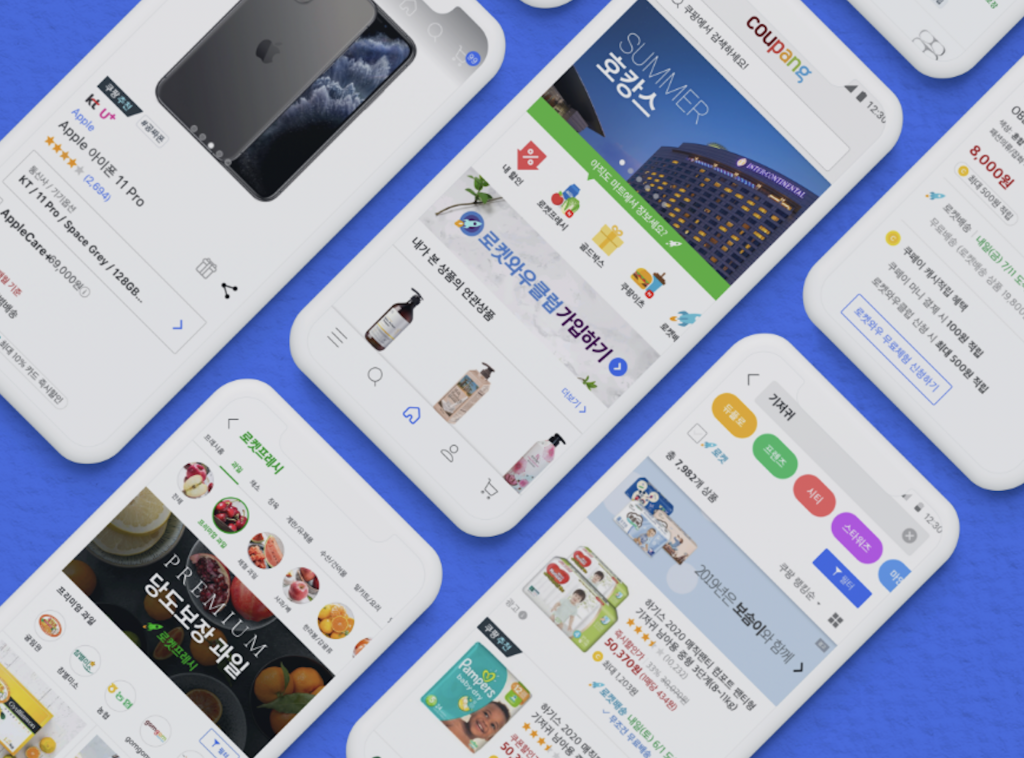Boasting “one of the highest rates of internet penetration and smartphone adoption in the world” and a robust logistics network, Coupang is swiftly drawing comparisons to Amazon. The 10-year old privately-held company – which maintains the title of the largest e-commerce marketplace in Korea with a valuation of $9 billion as its latest funding round in 2018 – revealed this month that it will list on the New York Stock Exchange, in furtherance of what analysts expect will be “the largest [initial public offering] from a foreign company since Alibaba Group Holding’s blockbuster 2014 debut.”
A February 12 filing with the U.S. Securities and Exchange Commission (“SEC”) “reveals a company growing at a rapid clip and with shrinking losses,” the Wall Street Journal reported late last week. Seoul, South Korea-headquartered Coupang – which sells everything from cleaning supplies and groceries to name-brand sneakers and skincare – “generated $12 billion in revenue in 2020, up from $6.3 billion in 2019, while its loss narrowed to $475 million from $699 million.” The burgeoning company’s IPO, which is expected to garner a valuation of more than $50 billion, “could take place as soon as March,” according to the WSJ.
In the same SEC filing, Coupang – which has racked up accolades and garnered attention from analysts that are predicting that the company is well-positioned to be part of the next class of multi-billion-dollar giants – sheds light on one of the issues that is nagging the fast-growing company: counterfeits.
Counterfeit Goods & Public Perception
As Coupang sets out in its S-1 filing, “Investing in our Class A common stock involves a high degree of risk because our business is subject to numerous risks and uncertainties. Among the “principal factors and uncertainties that make investing in our Class A common stock speculative or risky”? Potential “harm to our Coupang brand or our associated brands and marks or reputation” as a result of “suppliers or merchants us[ing] unethical or illegal business practices, such as the sale of counterfeit or fraudulent products.”
“Although our terms of use prohibit the sale of counterfeit items or any items infringing upon third parties’ intellectual property rights in our marketplace and we have implemented measures to exclude goods that have been determined to violate our terms of use,” Coupang states that it “may not be able to detect and remove every item that may infringe on the intellectual property rights of third parties,” thereby, situating itself firmly with its American counterpart, Amazon, which has been marred with allegations of fakes on its third-party marketplace, including by the U.S. Trade Representative.
Hardly a hypothetical risk, Coupang revealed in the S-1 that it has “received in the past, and may receive in the future, complaints alleging that certain items listed or sold on our apps or websites infringe upon the intellectual property rights of third parties, which could lead to actual disputes and lawsuits relating to intellectual property infringement.” The Bom Suk Kim-founded e-commerce giant – which says that it is “currently party to litigation or disputes related to intellectual property rights of third parties” and “expect[s] to continue to be subject to” such disputes – further states that “the e-commerce industry is characterized by vigorous protection and pursuit of intellectual property rights, which has resulted in protracted and expensive litigation or investigations for many companies.”
Coupang asserts that “a public perception that non-authentic, counterfeit, or defective goods are sold on our apps and websites … even if factually incorrect or based on isolated incidents, could damage our reputation, diminish the value of our brand, undermine the trust and credibility we have established, and have a negative impact on our ability to attract new customers or retain our current customers.” This is a very-real issue for platforms of all sorts – from Amazon to the likes of luxury consignment sites – and their investors. (Hence, The RealReal’s continued arguments that Chanel is not really taking issue with fakes in its enduring counterfeit-focused lawsuits against resellers but is more realistically seeking to chip away at consumer trust of “unauthorized” secondary market players in order to maintain its hold on the market).
Still yet, this is something we have been addressing with regularity when it comes to Amazon given the Seattle-based behemoth’s enduring quest to bolster consumer and brand-partner trust by way of litigation and internal ventures in light of issues involving counterfeit goods.
The aptly company notes, “If we are unable to maintain our reputation, enhance our brand recognition, or increase positive awareness of our apps, websites, products, and services, as well as products sold by merchants through our online marketplace, it may be difficult to maintain and grow our customer base, and our business, financial condition, and results of operations may be adversely affected.”
A Larger Issue
The news of Coupang’s impending IPO, including its seeming issue with counterfeit goods, comes shortly after the internet titan was the subject of a complaint lodged by the Korea Watch & Clock Industry Cooperative (“KOWIC”), which asserted in November that Coupang has actively failed to crack down on the sale of counterfeit watches on its site, thereby, causing watchmakers to suffer millions of dollars in damages.
The Seoul-based trade group asserted that SoftBank-backed Coupang’s site is rife with listings for pricey watches, such as those from Rolex and LVMH-owned TAG Heuer. However, instead of offering up the real thing, KOWIC alleged that Coupang is selling these watches for “about 200,000 won per piece” ($178.61), along with a note in the product descriptions that alert consumers to the fact that the watches are not authentic. KOWIC demanded that Coupang cease sales of counterfeit watches and pay the respective trademark holders for damages suffered as a result of such alleged infringement.
“The current law only punishes dealers who sell fake products and not the retailers, such as Coupang,” KOWIC wrote in a press release. “This system is hurting small- and medium-sized firms here that are making watches fair and square.”
The Korea Times reported around the same time that aside from counterfeit watches, “Coupang’s online mall also offers imitation luxury bags and wallets, with the items often described as ‘customized versions” of popular luxury brands.” However, such allegedly “custom” designs are identical to the real thing, manufactured using “similar leather as the original” designer products.
Pushing back against such criticism in late 2020, a spokesman for Coupang said that the company has established a taskforce of some 100 monitors “to eradicate fake luxury goods trading,” and “taken preventive measures by implementing a high-tech system,” including “operating an artificial intelligence system to analyze the prices and images of fake items.” However, the rep for the company stated that counterfeit sellers are often about to avoid detection and/or shutdowns because they “lure customers to contact them on social media, which makes it harder for us to crack down on them.”
This practice of counterfeit-sellers encouraging consumers to communicate and ultimately, arrange for the sale of such infringing products on sites that are separate from the Coupang platform is in line with a larger movement from marketplace sites to social media and/or messaging apps, such as WhatsApp, that has been underway in recent years. Trends over the past several years “suggest that counterfeiters are finding it cheaper and more convenient to sell goods through WhatsApp by creating a closely networked B2B marketplace through which to distribute their goods,” according to RNA Technology and IP Attorneys’ Ranjan Narula and Abhishek Nangia, who note that “sellers can also create B2C networks, offering consumers the option of conversing directly with them and providing them with products according to their requirements.”
Last month, the U.S. Trade Representative specifically addressed the “continued and growing concern about the proliferation of counterfeits facilitated by social media platforms” in its 2020 Review of Notorious Markets for Counterfeiting and Piracy. The government agency piggybacked on concerns set out in its 2019 report, citing enduring issues related to the “growing trend of counterfeit products being offered for sale on e-commerce features related to large platforms, such as WeChat,” and presumably, the Facebook-owned WhatsApp, as well











